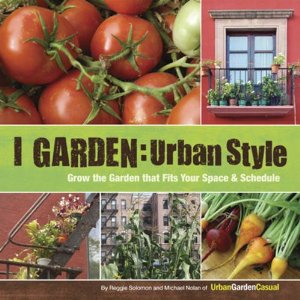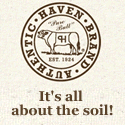 Over the weekend I was doing some thinking. As a so-called authority on gardening I often have people tell me that they would love to garden, but… and then I am greeted with a barrage of
Over the weekend I was doing some thinking. As a so-called authority on gardening I often have people tell me that they would love to garden, but… and then I am greeted with a barrage of excuses reasons ranging from space issues to time constraints, each of which I have a solution for.
I was blindsided though when someone recently told me that gardening was just too complicated.
After decades of doing it I was probably a bit jaded and operating on auto pilot more often than not but that comment made me question not only gardening in general but more specifically my own practices. Because I fancy myself as one who tries to make things as simple as possible, the idea that we are overcomplicating something as basic as gardening is troubling to me. I was reminded of the unlikely gardening guru Ruth Stout (sister to Nero Wolfe author Rex Stout) and how decidedly uncomplicated her methods were.
After being tired of waiting on the plowman who was perpetually late, Ruth Stout took matters into her own hands and planted her seeds without plowing the soil first, by just scraping the soil, dropping the seeds and patting them in place. To her surprise, the seeds grew. She went on to grow a thriving garden for many years before her death in 1980 at the tender age of 96.
On Sunday I went in search of the short documentary film I’d seen years ago about Ruth and was lucky enough to have found it so that I might share it here.
Ruth Stout’s Garden (Video 1 of 2)
Ruth Stout’s Garden (Video 2 of 2)
Big Questions
As someone who has built my career on being a gardening communicator, I had to ask myself a few questions:
- Have we made gardening too complicated?
- Are we disenfranchising those who want to garden but lack the experience and are therefore scared to try because there are too many hoops to be jumped through?
- What can be done to make things less complicated for new gardeners?
Do you think gardening has become too complicated? Give us your tips for easier gardening in the comments below.
















{ 4 comments… read them below or add one }
I think one of the reasons people’s eyes start to glaze over when we explain gardening concepts is that they lack the background information. It seems obvious that there’s a difference between perennial and annual flowering plants, for instance, but that’s not intuitive for everyone. I was reminded of this when a friend told me she dug up a bunch of ‘dead daisies’. They were merely dormant. Another concept that non-gardeners find especially confusing is that pruning stimulate growth; hence all the truly dire pruning jobs you see almost everywhere.
Wonderful article and sharing Ruth’s concept and gardening method I hope will inspire more folks to sprinkle some seeds in the ground or in a container and let them grow! <|;-)
I think you have a good point Michael. With all the varied methods and morals behind why we do what we do as gardeners its no wonder they believe it’s too complicated! If we could distill it down to where there weren’t so many voices it would be very helpful to the new gardener I think. And I’m someone who has also spent years working as a garden instructor/writer. Too much information is like trying to feed a baby the whole bottle at once. They always choke.
Just like my collaborator and I she lives an urban homesteading lifestyle that she finds exciting and important enough to write a book about. Its not about how to do it yourself or how other people are doing it but about her own personal adventures in farming in the city..Our book is more of a how-to and why-to for urban homesteading and its the first book about urban homesteading to really speak about this not just as a set of individual choices but as a movement of people making this choice. So in addition to how-tos for urban gardening animal raising food preservation water waste and energy management personal care and community building you hear from lots of people who have chosen this as their lifestyle..This is the first book to really explore urban homesteading as not just something you do at home with your family but as something you do in your community that can affect and influence the way a lot of people live use energy and manage their resources.